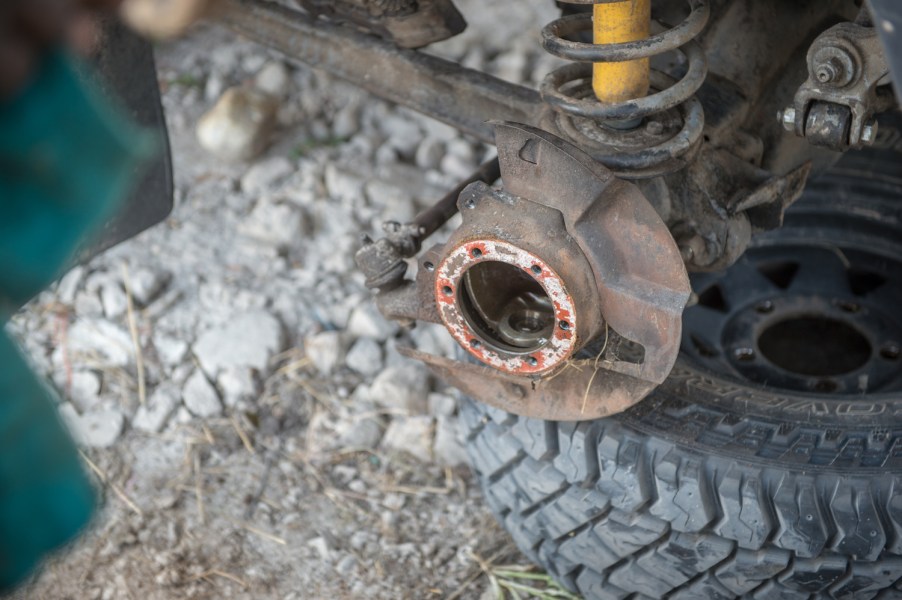
Why Is My Car Rumbling on the Highway?
It sometimes happens when you’re driving on the highway, and suddenly there’s a violent vibration. You might feel the vibrations from the steering wheel, in the pedals, in the front wheels, or you might feel it in the transmission tunnel. The good news is, there’s an answer, and the bad news is, there may be something wrong with your car. Depending on the noise or how violent the vibrations are, there are several possibilities, and unfortunately, not all of them are easily discernible. You’ll want to find a mechanic to check them out as part of regular maintenance. Here are some potential reasons for your car making a rumbling on the highway.
The flexplate, technically “Giubo,” but also called a “Guibo” can fail
Owners of German rear-wheel-drive cars should pay attention here. At low speeds, you might feel something under your gearshift arm, like a coarse and invasive thumping. It’s coming from the transmission tunnel and is fairly easy to diagnose. As you know, a rear-wheel-drive car has an engine and transmission in the front and a differential in the back. They are connected via a driveshaft, which is a metal pipe that transfers the power to the differential.
At one end, there is a flex disc, called a “Giubo” (or Guibo). Its purpose is to reduce driveshaft vibrations, according to eEuroparts. You can easily diagnose if this part is on its way out by jacking up your car and inspecting the Giubo with a flashlight. As it gets more worn with usage, the vibrations will increase and become more violent.
Vibrations in the steering wheel can indicate lost wheel weights

You might feel vibrations from the steering wheel at a certain speed, and this could come from a few sources. Either the alignment is off, which causes the tires to wear unevenly and thus requires an inspection from a tire shop, or the wheel lost some weights and is unbalanced. Either way, take the car to a wheel shop to have the tires inspected and rebalanced. If all of this checks out fine, then there may be something darker and uglier lurking within the wheel well.
Steering wheel vibrations can come from a failed wheel bearing

Vibrations from the steering wheel may also come from a failed, or failing, wheel bearing. Luckily you’ll hear a wheel bearing fail before you feel it. A failing bearing makes a loud, rapid “Whomp” sound on repeat, like a broken record. Wheel bearings fail primarily from overuse. They are just another part of the car that will eventually fail, like brake pads or tires themselves.
Imbalanced tires can eventually cause a wheel bearing to fail, as can road conditions. When you hear the noise, have the car inspected. There are a few tests that can determine a failed bearing, but sometimes they are inconclusive. If a bearing fails completely, it can seize the wheel and damage the wheel hub and even the transmission.
Have your car inspected for your and everyone else’s safety
Vibrations from the steering wheel are no joke. Eventually, they will knock something loose, which can break something else, and before you know it, you’re driving front-first into a ditch or a telephone pole. Do yourself and everyone else a favor, pony up the money for an inspection, and save thousands in potentially worse repairs later on down the road.


